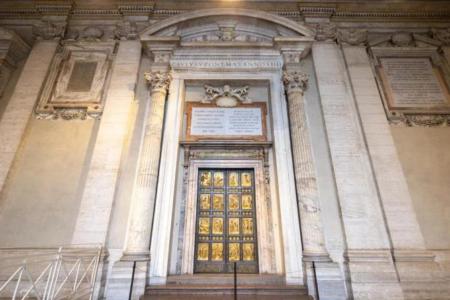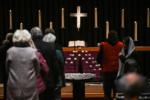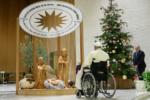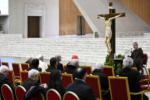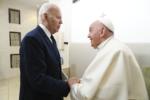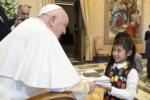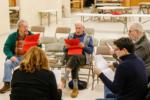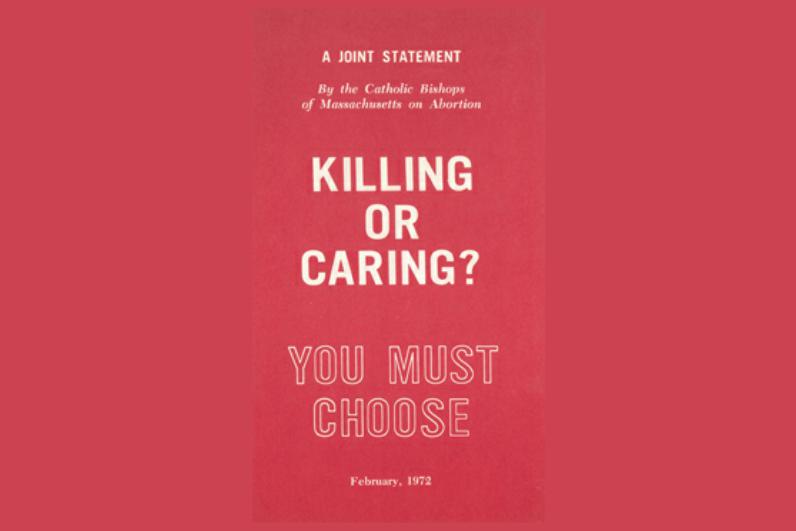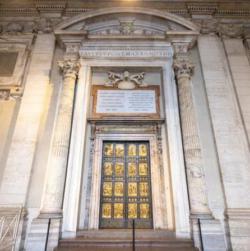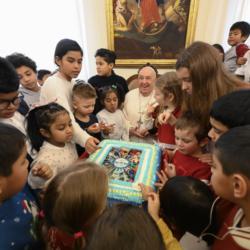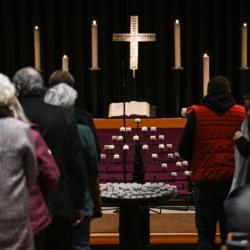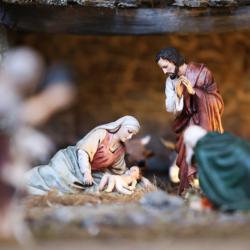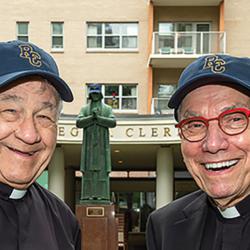The archdiocese reacts to the 1973 Roe decision
On Jan. 22, 1973 -- 50 years ago this week -- the U.S. Supreme Court handed down a landmark decision in the Roe v. Wade case, guaranteeing a constitutional right to abortion.
The archdiocesan opposition to the decision, led by then-Archbishop Humberto S. Medeiros, was swift and forceful. In his statement, published in The Pilot on Jan. 26, the archbishop wrote, "I am struck with horror and dismay by this cruel decision. At a time when so much importance is rightly given to human values without distinction of race, creed, or class, a death blow is now being dealt against the sacred origins of every person."
The archbishop's position was in keeping with the teaching of the Catholic Church, whose catechism states: "Since the first century, the Church has affirmed the moral evil of every procured abortion. This teaching has not changed and remains unchangeable. Direct abortion, that is to say, abortion willed either as an end or a means, is gravely contrary to the moral law" (No. 2271).
Archbishop Medeiros reminded Catholics that despite the Roe decision, the position of the Church on abortion was unchanged. "No judicial power nor legislative bodies," he wrote, "can make the willful [sic] and intentional destruction of the innocent unborn something good." It was the obligation of the faithful, he argued, to "work and pray together for a reversal of the Supreme Court's injustice to the unborn."
The archbishop's tone echoed his previous statements about the categorical evils of abortion. In a widely-publicized 1970 homily at the Cardinal Cushing Centers for Exceptional Children -- the venue chosen to reflect his warnings that abortion would target babies with physical and intellectual disabilities -- the archbishop had called abortion "the new barbarism." He warned that proponents of liberalizing abortion laws were "moving ruthlessly to upset the moral order established by God as the foundation for peace on earth." For Archbishop Medeiros, Roe was the culmination of these efforts.
Yet Jan. 22, 1973, was not the end of the abortion fight in the archdiocese; rather, it marked a new beginning, becoming the impetus for a revived pro-life movement that was both organized and multidirectional, consisting of prayer, social action, and political organization.
In March 1973, before departing for Rome for the papal consistory that would see him elevated to the cardinalate, Cardinal-elect Medeiros directed that all archdiocesan priests include in every Mass the invocation "That the grace of God our Father may enlighten the minds and change the hearts of all those who favor, promote, seek, or perform abortions." He sought to ensure that the whole of the archdiocese was united in prayer against abortion; later, he would institute an annual Respect Life Mass to be offered specially for pro-life issues.
In May, the new cardinal waded into politics, urging the 1.9 million Catholics of the archdiocese to support a piece of proposed legislation that would protect medical professionals from compulsory involvement in abortions, sterilizations, and contraceptive services. After a letter in support of the measure was read at all archdiocesan Sunday Masses, it passed by a landslide and was signed into law on July 9.
Because abortion was not, in the cardinal's view, "a matter of private morality alone, but a public issue with political implications," political action on the issue was imperative at both the state and national level. The laity joined with non-Catholics to protest at the Massachusetts State House on the first anniversary of Roe, at a rally organized by Massachusetts Citizens for Life. Some even traveled to Washington, D.C., for the first-ever March for Life -- a relatively small event, when compared to the massive crowds seen at the march in recent years.
On March 7, 1974, Cardinal Medeiros spoke before the Senate Judiciary Committee in support of a constitutional amendment protecting the rights of the unborn. "The right to life is described in the Declaration of Independence as 'unalienable' and as a right with which all men are endowed by the Creator," he testified. "The constitutional amendment should restore the basic protection for this human right to the unborn, just as it is provided to all other persons in the United States."
While never wavering in his private and public efforts to end abortion, Cardinal Medeiros understood deeply the many pressures that led women to seek abortions. He knew that abortion would never be ended unless Catholics and non-Catholics alike worked to address the economic and social factors that made it difficult for women to choose life. To that end, he established an Office of Pro-Life Activities in the archdiocese that would champion the construction of a "culture of life" in all parishes, schools, and ministries.
Today, the archdiocesan Pro-Life Office is part of the Secretariat for Health Care and Social Services. It oversees such programs as Pregnancy Help, a resource center where expecting or new mothers can receive emotional support, material assistance, and social service referrals, and Project Rachel, a ministry that focuses on healing for those who have had abortions in the past. To learn more about the work of the Pro-Life Office, please visit bostoncatholic.org/pro-life-office.
On June 24, 2022, the Supreme Court overturned Roe v. Wade in Dobbs v. Jackson Women's Health Organization. In a statement on the ruling, Cardinal Seán P. O'Malley wrote that the decision, while "deeply significant and encouraging" also "challenges us as a nation to work together to build up more communities of support -- and available access to them -- for all women experiencing unplanned pregnancies."
VIOLET HURST IS AN ARCHIVIST FOR THE ARCHDIOCESE OF BOSTON.
